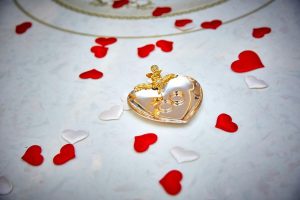Getting Stuck on Details After a Breakup: How to Move On
Breakups are never easy. Whether you initiated the split or your partner did, the end of any relationship can be painful and disorienting.
It’s natural to reflect on what went wrong, to wonder where you might have made mistakes, and to try to figure out what the future holds for you romantically. However, many people get stuck in the aftermath of a breakup, obsessing over trivial details and trying to figure out the “real” reason why things fell apart.
If you find yourself in this situation, it can be challenging to move on and find closure. In this article, we’ll explore some of the common ways people get stuck in the aftermath of a breakup and provide tips on how to move on.
1. Obsessing over Trivial Things
It’s easy to get hung up on trivial details after a breakup. Maybe you keep replaying specific moments in your mind, wondering if things might have turned out differently had you said or done something differently.
Perhaps you’re obsessing over your hair color or wardrobe choices, wondering if your appearance played a role in the split. While it’s natural to want answers and closure, it’s essential to recognize when you’re obsessing over trivial details.
Ask yourself: Is this really the root cause of the split, or am I just trying to distract myself from larger issues? If you find yourself fixating on something like your hair color or clothing choices, try to shift your focus to more significant factors, like communication or compatibility issues.
2. Trying to Figure Out the “Real” Reason for the Breakup
Many people blame themselves for a breakup and spend countless hours trying to figure out the “real” reason why things fell apart. They might ask themselves questions like: Was it something I said?
Could I have done something differently? If only I had been more understanding, more supportive, more available.
While it’s healthy to reflect on your role in the relationship and think about what you could do differently in future relationships, it’s important to recognize when you’re blaming yourself unnecessarily. Relationships are complex, and things rarely boil down to a single cause or factor.
Instead of fixating on the “real” reason for the split, try to focus on what you can learn from the experience.
3. The Futility of Dwelling on the Past
When a relationship ends, it’s common to wish you could go back in time and change things. Maybe you wish you had been more communicative, more supportive, or more giving.
Unfortunately, dwelling on the past is an exercise in futility. No matter how much you wish things could be different, you can’t change the reality of what happened.
Instead of dwelling on the past, try to focus on the future. Ask yourself: What can I do differently in future relationships?
What did I learn from this experience? How can I grow and improve as a person?
By focusing on the future, you can move forward and find closure.
4. Every Relationship Contains a Lesson
While endings are always painful, every relationship has the potential to teach us something valuable. Perhaps you realize that you need to work on communication skills or that you should prioritize self-care and self-love in future relationships.
Maybe you learn that you should trust your gut instincts and not compromise your values for the sake of a relationship. Instead of fixating on what went wrong, try to focus on the lessons you learned.
By doing so, you can grow as a person and move on to healthier, more fulfilling relationships in the future.
The Importance of Moving On
5. Recognizing Your Part and Resolving to Change
Moving on requires a willingness to take responsibility for your part in the relationship and a commitment to making positive changes going forward. If you find yourself getting stuck in the aftermath of a breakup, ask yourself: What could I have done differently?
What can I do to improve myself for future relationships?
6. Shortening the Cycle Between Relationship Blowup and Trying Again
People often jump into new relationships too quickly after a breakup, hoping to find relief from the pain and loneliness. While it’s natural to want to “move on” quickly, it’s essential to take time to heal and reflect before entering a new relationship.
Otherwise, you might find yourself repeating the same patterns and making the same mistakes.
7. The Difference Between Realization and Obsession
It’s healthy to realize what went wrong in a past relationship and to learn from those mistakes. However, there’s a fine line between realization and obsession.
If you find yourself fixating on trivial details or blaming yourself excessively, you might be stuck in an unhealthy pattern of thought.
8. Letting Go of the Story
Finally, moving on requires letting go of the story you’ve been telling yourself about the relationship. This might involve mending bridges with your ex and moving on amicably, or it might mean acknowledging that the relationship is over and choosing to focus on new beginnings.
In conclusion, moving on after a breakup can be challenging, but it’s essential for personal growth and well-being. By recognizing when you’re stuck in unhealthy patterns of thought, taking responsibility for your part in the relationship, and committing to positive changes, you can find closure and move forward to healthier, more fulfilling relationships in the future.
In conclusion, getting stuck on trivial details, obsessing over the “real” reason for a breakup, and dwelling on the past are all common aftermaths of a relationship ending. However, it is important to recognize the futility of these actions and understand that every relationship has the potential to teach us valuable lessons.
We must take responsibility for our part in the relationship, commit to personal growth, and avoid jumping into new relationships too quickly. By focusing on the future and letting go of the story, we can find closure, move on, and pave the way for healthier, more fulfilling relationships in the future.



